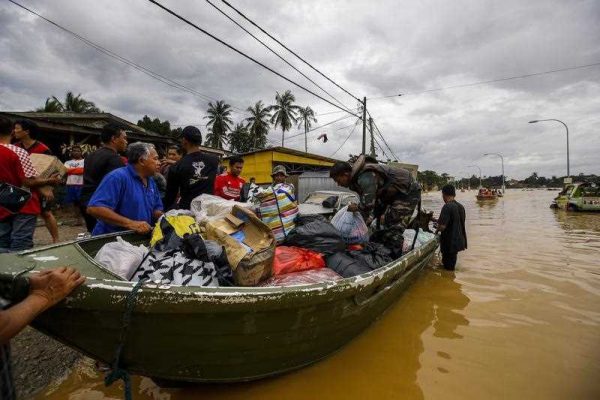The FOC is a little-known outfit of 26 mostly European and North American states, but includes Japan, Mongolia and the Maldives among its members. Australia has also joined the FOC in 2015. FOC members are ‘committed to working together diplomatically to voice concern over measures to restrict internet freedom and support those individuals whose human rights online are curtailed’. But it seems there is some confusion among the Asian FOC members as to what this means.
In May 2015, Mongolia hosted the first FOC conference in the Asia Pacific. Mongolia is a liberal democratic country with a high level of internet penetration and social media use. It especially stands out considering the repressive nature of other post-socialist countries in Asia. But advocates of internet regulation liberalisation lamented the existence of a ‘blacklist’ of domain names in the country, as well as prominent cases of bloggers such as Ts Bat who was jailed for criticising government officials.
Mongolia benefits from associating itself politically with the mostly-Western organisation. Both China and Russia, unilaterally and through the Shanghai Cooperation Organization (SCO), have placed severe limitations on freedoms online. As Mongolia is an observer of the SCO it has faced pressure from other SCO members to limit online freedom to consolidate internet polices of members and observers. Mongolia is worried about maintaining its political independence and may therefore value its role in the FOC as a means to counterbalance pressure from the SCO. The FOC also gives Mongolia a moral high ground to distinguish itself from China.
Fellow FOC member Japan has seen an erosion of press freedom under Prime Minister Shinzo Abe. The 2013 Act on the Protection of Specially Designated Secrets (SDS) created barriers for journalists and citizens alike to report on activities designated as ‘sensitive’ by the government. Civil society groups opposed this legislation, but failed to exert enough pressure to stop it. Officials claim the law is necessary to enhance information sharing with allies and to stop diplomatically harmful leaks. But Reporters Without Borders downgraded Japan from 53rd to 61st (of 180 countries) over the past two years of the World Press Freedom Index after the ratification of the SDS Act.
The Abe government has also appeared to censor critics in the media. In 2013, Katsuto Momii — a government loyalist — was appointed as president of NHK, Japan’s national public broadcasting organisation. This compromised the objectivity of one of the most important media outlets in the country. As critical voices in mainstream media disappear, freedom of expression online becomes all the more important.
To Japan’s credit, the internet is far freer in Japan than in its Northeast Asian neighbours China and South Korea. China’s ‘Great Firewall’ and South Korea’s archaic National Security Act and Cyber Defamation Law clearly restrict freedom of speech online. Meanwhile, the SDS Act has not been used against bloggers or citizen journalists in Japan.
As Japan brands itself as a ‘mature maritime democracy’, it has become important to associate itself with its ideological peers in the Western world. And, despite making overtures to Southeast Asia, Japan is eager to distance itself from the East Asian mainland. FOC membership gives Japan the moral high ground to criticise China in regard to its cyber governance.
The Maldives is perhaps the most perplexing of the Asian members of the FOC. Unlike Japan or Mongolia, the Maldives is not an active member of the Western community, nor is it a mature democracy. It is not a country known for its advocacy of freedom online or offline. It ranked 112th on the 2015 World Press Freedom Index, and scored only four out of seven (‘partly free’) in the Freedom in the World 2015 index, where one is most free and seven the least. At some point, the Maldives might meet the high standards expected by most FOC members, but currently its membership is premature.
The highest growth of internet users is likely to come from countries with authoritarian regimes. Various forms of authoritarianism are prevalent across Asia. Discussions of human rights and their extension to online human rights is thus of particular significance in Asia. By asking Mongolia to host the conference, the FOC surely was hoping to signal to other Asian countries that a discussion of human rights ought to include online rights. But not a single foreign journalist attended or wrote about the conference. Will there be a contagion effect based on Mongolia’s public modelling of online freedom? The answer remains unclear.
Julian Dierkes is Associate Professor at the University of British Columbia’s Institute of Asian Research.
Trevor Kennedy, Melanie Schweiger and Christina Toepell are MA Candidates in Asia Pacific Policy Studies at the University of British Columbia.


It looks so good to read this article. However some examples show that total freedom is not good for big populations.
China crushed the Tiananmen square demonstration and established one party rule firmly. Today it has reached to middle level in terms of development.
India on other hand has had total freedom for the last 67 years and remains at the bottom of all countries.
Intelligent writers keep on explaining above examples with no end in sight.
The fact is a bottom level countries like India cannot developed to middle level without some restriction on personal freedom. At the end some one has to answer why 1/3 of its population still live under poverty line after 67 years.